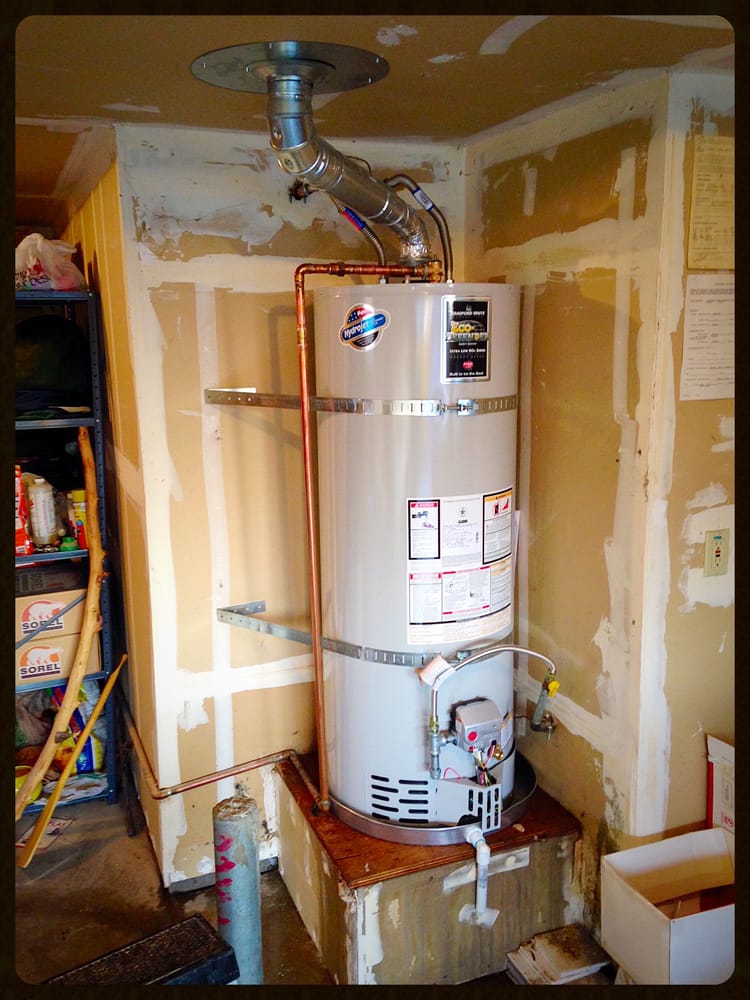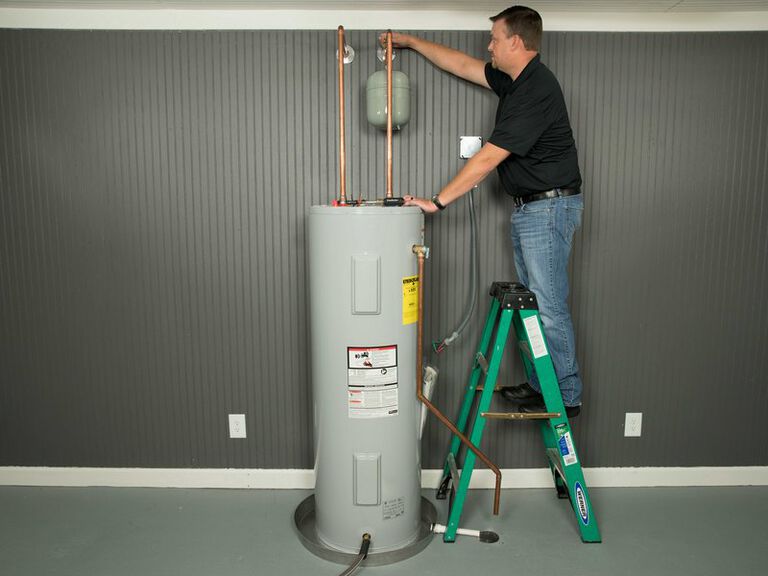Certified Gas Leak Repair for Your Safety and Assurance
Certified Gas Leak Repair for Your Safety and Assurance
Blog Article
Complete Overview to Water HeaterInstallment and Substitute
Recognizing the ins and outs of hot water heater installment and replacement is critical for house owners looking for to make certain performance and dependability in their warm water supply. From choosing the appropriate type and size to implementing a seamless installation procedure, a number of aspects must be thought about to avoid usual mistakes. This guide will certainly offer you with the essential actions and insights to navigate the intricacies of this home renovation task, while also emphasizing essential upkeep methods that can lengthen the life of your system. As you explore these elements, you may locate on your own reassessing your existing configuration and recognizing areas for enhancement.
Types of Water Heaters
When thinking about water heater installation and substitute, it is important to recognize the different types of hot water heater available in the market. The most typical types consist of tank water heating systems, tankless water heating units, heatpump water heaters, and solar hot water heater.
Container hot water heater are standard systems that store a details quantity of warm water, making them easily available when required. They are usually less costly upfront however might incur higher power costs with time due to warmth loss. On the other hand, tankless water heaters provide warm water as needed, removing the need for storage space. They are power reliable and can save area, however their first costs are normally greater.
Heatpump water heating systems use electrical power to transfer warm from the air or ground to heat water, supplying significant energy financial savings however calling for more area and particular setup conditions. Finally, solar water heating units harness solar power to warm water, providing an environmentally friendly option with possible lasting cost savings, although they typically call for a back-up system for gloomy days.
Comprehending these alternatives makes certain informed decisions relating to installment and replacement, dealing with certain demands and preferences.
Selecting the Right Size
Selecting the ideal size for a water heater is crucial to guarantee ideal efficiency and performance. A system that is as well tiny will certainly battle to meet family demands, resulting in inconsistent warm water availability and enhanced power intake. Conversely, an oversized water heating unit can result in unnecessary energy waste and greater utility bills.
To establish the appropriate dimension, take into consideration the household's peak hot water usage. This can be computed based on the variety of residents and their common warm water demands. A family of four might need a water heating unit with a capability of 50 to 80 gallons, depending on the use patterns, such as synchronised showers and washing.
Additionally, examine the recovery rate, which measures exactly how promptly a heater can restore warm water after it has actually been utilized. For tankless models, concentrate on the circulation price, measured in gallons per min (GPM), to ensure it satisfies the family's synchronised need.

Installation Process Review

Following, the old system needs to be separated and gotten rid of, taking care to comply with neighborhood codes and guidelines concerning disposal. As soon as the old system is out, the brand-new water heating system can be positioned in location. This step entails connecting the water supply lines, making sure that all fittings are protected and leak-free.
After developing water links, it's important to attach the power supply, whether electric or gas, complying with the supplier's directions meticulously. As soon as all links are made, the system should be filled up with water, and the power can be turned back on. It's essential to inspect for leakages and make certain the water heater is working correctly before finishing the setup procedure.
Common Installation Errors

Another regular blunder is disregarding to follow local codes and guidelines. Failing to stick to these criteria can not only lead to safety and security risks yet may likewise result in pricey fines or the need for costly reinstallation.
Falling short to secure links or using the incorrect kind of fittings can lead to leakages and water damages. By avoiding these typical installment mistakes, homeowners can guarantee their water heating unit runs safely and effectively, optimizing efficiency and long life.
Upkeep Tips for Durability
Proper upkeep of a hot water heater is crucial for its durability and optimum performance. Normal assessments and maintenance can prevent pricey repair services and extend the appliance's life-span. Begin by inspecting the temperature level setting; it must generally be established between 120 ° F and 140 ° F for optimum power effectiveness and safety and security.
Every 6 months, purge the tank to eliminate debris accumulation, which can impair home heating effectiveness and cause corrosion. To do this, transform off the heater, connect a hose pipe to the drain shutoff, and let the water run up until it is clear.
When they are worn away,Anode poles ought to be checked every year and replaced. These rods help avoid container corrosion by attracting corrosive elements in the water.
In addition, examine the stress alleviation valve regularly to ensure it is operating correctly. This valve is important for like it preventing extreme stress build-up within the container.
Finally, take into consideration scheduling a professional maintenance check every few you can check here years for thorough inspections and maintenance. By adhering to these maintenance tips, house owners can significantly boost the effectiveness, safety and security, and lifespan of their hot water heater, guaranteeing dependable warm water for many years to find.
Verdict
In verdict, correct installment and maintenance of water heating units are essential for ensuring effectiveness and long life (plumber Denton). Selecting the appropriate type and size, sticking to installation guidelines, and staying clear of typical blunders significantly contribute to ideal efficiency. Normal upkeep checks and professional maintenance assistance receive performance and protect against costly repair work. By recognizing these necessary elements, property owners can accomplish a trustworthy warm water supply while reducing possible problems connected to water heater procedure.
Understanding the complexities of water heater installment and substitute is essential for home owners seeking to guarantee effectiveness and reliability in their warm water supply.Container water heating units are traditional systems that store a particular quantity of warm water, making them easily available when needed. In comparison, tankless water heaters supply warm water on demand, eliminating the demand for storage. Selecting a water heating system that is either too tiny or as well big can lead to ineffectiveness, resulting in insufficient warm water supply or too much power intake.
By comprehending these necessary facets, homeowners web link can attain a dependable hot water supply while decreasing potential concerns connected to water heater procedure. drain cleaning.
Report this page